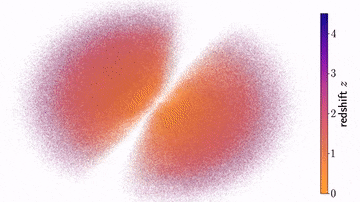When it comes to how we experience, interact with, and navigate our world, timing is everything. And new research in mice suggests a specific set of cells is fundamental to the way we learn complex behaviors that rely on timing.
The discovery by a team at the University of Utah in the US could eventually help detect onset of neurodegenerative diseases that affect time perception, like Alzheimer’s.
To create a memory for your own personal archives, your brain must encode the timing and sequence of events as you’re experiencing them. It creates this timeline using circuits in the medial temporal lobe (MTL), one of which is the medial entorhinal cortex (MEC).
This MEC circuit has ‘time cells’ that fire at specific moments during tasks, on a scale of seconds and minutes, a kind of organic internal metronome that helps us keep track of time in the moment.

Scientists suspect this ‘timer’ may leave its mark on episodic memories, so the ‘frames’ of our experience are replayed in sequence, with a built-in rhythm. But to do so, these time cells would need learning dynamics that allow them to encode different temporal contexts.
We know ‘spatial cells’ within the MTL can reorganize their ‘firing fields’ according to spatial contexts, as an animal moves through different and changing environments.
The researchers wanted to investigate whether time cells have a similar ability to ‘re-map’ to different temporal contexts. They combined a complex time-based learning task with brain imaging to watch patterns of time cell activity.
If the time cells are as flexible as their spatial cousins, the team hypothesized, then “(1) distinct sequences of time cells will become active as animals learn to identify a new temporal context, forming a unique map or ‘timeline’ of each temporal context, and (2) such dynamics support learning of timing behavior.”
The first trial involved the mice completing a task in which the timing of events was crucial, distinguishing between an odor stimulus with variable timing, to get a reward.
The patterns in time cell activity were consistent regardless of odor stimulus pattern, but became more complex as the mice learned, developing unique ‘time scales’ corresponding to each stimulus.
And when the mice got the trial wrong, the researchers noticed, their time cells also fired in the wrong order.
“Time cells are supposed to be active at specific moments during the trial,” says neurobiologist Hyunwoo Lee. “But when the mice made mistakes, that selective activity became messy.”
When the researchers chemically blocked the MEC, disabling the mice’s time cells, the animals were still able to perceive and predict event timing, but it became impossible for them to learn the time-based task from scratch.
“Surprisingly, time cells play a more complicated role than merely tracking time,” says the study’s first author, neurobiologist Erin Bigus.
“The MEC isn’t acting like a really simple stopwatch that’s necessary to track time in any simple circumstance. Its role seems to be in actually learning these more complex temporal relationships.”
This research could lead to a better understanding of psychological conditions where people experience time very differently, like Alzheimer’s, which we already know affects the MEC early in its progression.
“We are interested in exploring whether complex timing behavior tasks could be a useful way to detect the early onset of Alzheimer’s disease,” says senior author of the study, neurobiologist James Heys.
There’s also growing interest in how ‘time blindness’ – a symptom of ADHD and autism – arises. Understanding how time is mapped and recorded in the brain could help progress investigations there, too.
The researchers note that while they found the MEC has a clear role in timing, there are other regions in the MTL, like the hippocampus and lateral entorhinal cortex, that also encode time.
“A clear future direction will involve testing the necessity of other MTL regions,” the team writes.
This research was published in Nature Neuroscience.










